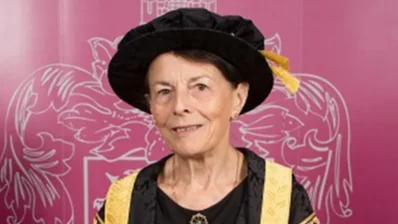A new UK-wide study, Generation New Era, will track the development of more than 30,000 babies born in 2026 through their early years and possibly beyond. The project is led by the UCL Centre for Longitudinal Studies and funded by the UKRI Economic and Social Research Council (ESRC). Academic leads at Swansea University, Ulster University, and the University of Edinburgh will oversee research efforts in Wales, Northern Ireland, and Scotland.
Professor Lucy Griffiths from Swansea University Medical School is leading the Welsh part of the study. She said the £42.8 million investment aims to generate evidence to address scientific and policy questions about early childhood development. "This study is so important for helping to shape vital policies and services for families across the UK. We are particularly delighted that the sample will be boosted in Wales so more families here have the opportunity to participate.
“We really hope parents of babies born in 2026 will join the study, helping us to support the health and development of this generation, and future generations too.”
The initiative comes at a time when many families face social and economic challenges such as increased living costs and job market uncertainty. The researchers intend for Generation New Era to provide a detailed account of family life and child development across all four nations.
Generation New Era continues a tradition of research council-funded longitudinal birth cohort studies dating back eight decades, including previous efforts like the 1946 National Survey of Health and Development, CLS’s 1958 National Child Development Study, 1970 British Cohort Study, and most recently, the Millennium Cohort Study.
Data collection will take place at two key stages: between nine to eleven months old and again at ages three to four years—before children start formal education. Babies born from January 1st to December 31st in 2026 will be eligible; invitations are scheduled for distribution beginning summer 2026.
One focus of this project is increasing representation among groups less often included in research—such as ethnic minority families, low-income households, and those living outside England. Organizers estimate that a third of all babies in Wales—and nearly half in Northern Ireland—will receive invitations.
The survey team plans to collect data on physical health as well as mental and social development during early years while also examining how technology, environmental changes, and societal shifts influence childhood experiences. The study aims to answer questions about how inequalities develop among children.
More than 60,000 children across the UK are expected to receive invitations with a target enrollment of approximately 30,000 participants. Efforts include focused recruitment among fathers as well as mothers along with groups underrepresented in past studies. Households from low-income areas will make up an overrepresented share—up to fifteen percent above national averages—and mothers under age twenty-five will also feature prominently within results.
By employing this approach, organizers aim for findings that reflect family experiences nationwide while enabling comparisons across regions.

